REACH Open Call 2: Statistics behind the 125 applicants
Between 22 November 2021 and 22 February 2022, 125 applications were submitted during the REACH Open Call 2! Let’s dive in and take a look at some statistics behind the applications!
Applicants had the opportunity to apply to one of three possible tracks. For Track 1, the REACH consortium had in collaboration with the leading European Digital Innovation Hubs defined several cross-sectorial Data Value Chain (DVC) themes, while for Track 2 REACH Data Providers had suggested challenges in accordance to the needs detected in their market.
Below is a breakdown of how many people applied for each Track:
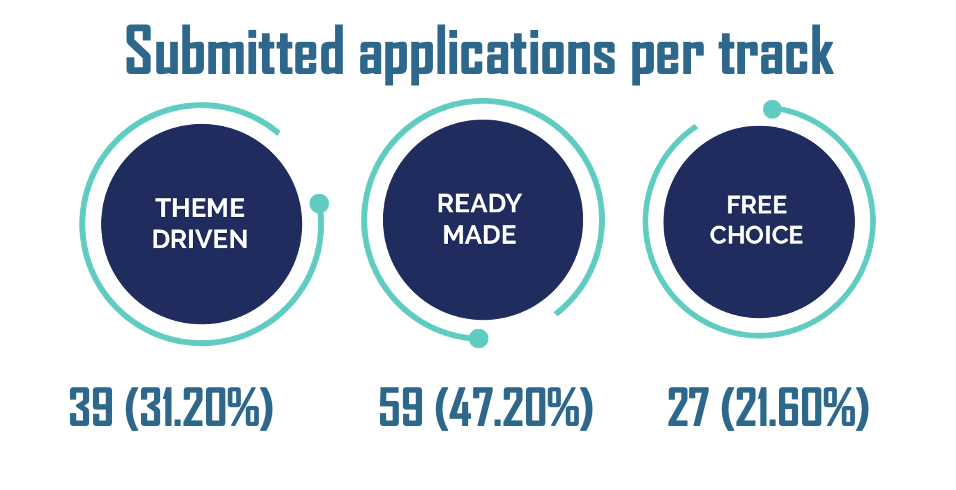
Ready-made challenges were the most popular choice, with a total of 59 applications (47.20%). The second most chosen Track was theme-driven, receiving 39 applications (31.20%). Free choice Track registered a total of 27 applications (21.60%).
Let’s see those numbers a little closer
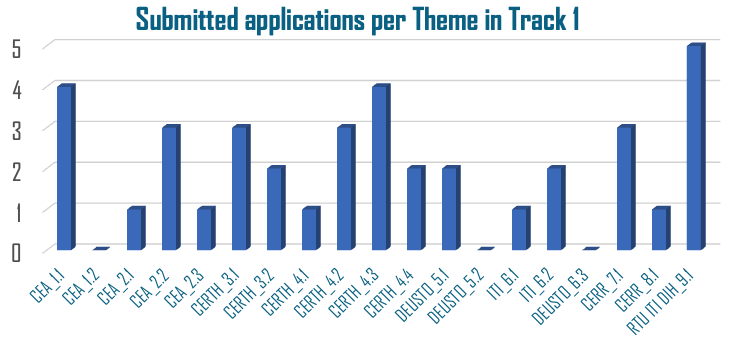
In Track 1 (theme-driven), the challenges proposed by RTU ITI Digital Innovation Hub, addressing “Heating Demand Prediction Using Sensory And Event Data” was the one with the greatest number of applications, followed by the challenge proposed by The Centre for Research and Technology Hellas, addressing “Securing Data Transactions” and the challenge proposed by CEA on “Digital Product Passport”.
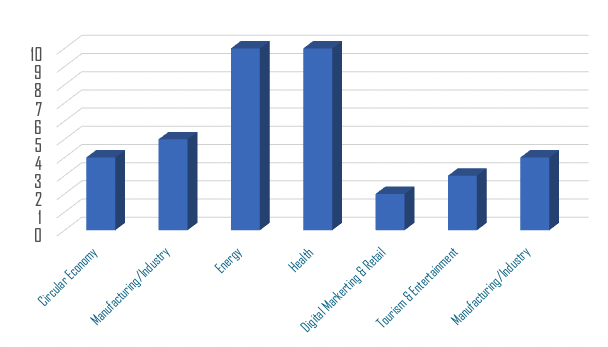
The Track 1 domains, which received the most submissions were Health and Energy.
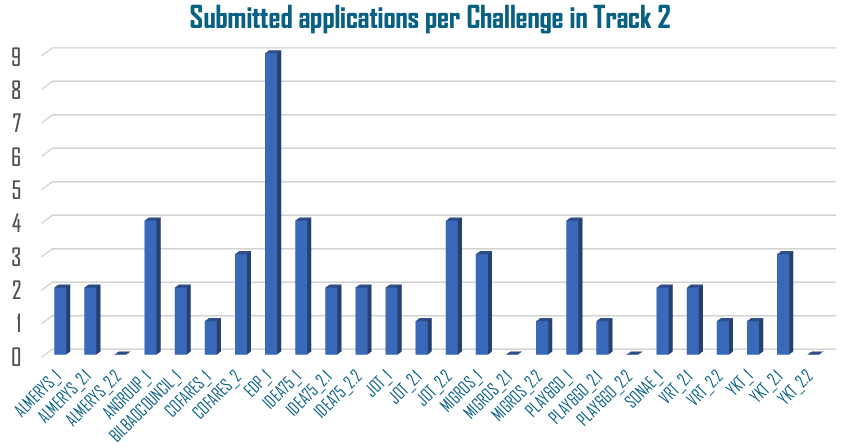
In Track 2 (ready-made), the challenge which unquestionably attracted the highest number of applications was “B2B Energy – Behavioural Predictive Model”, proposed by EDP.
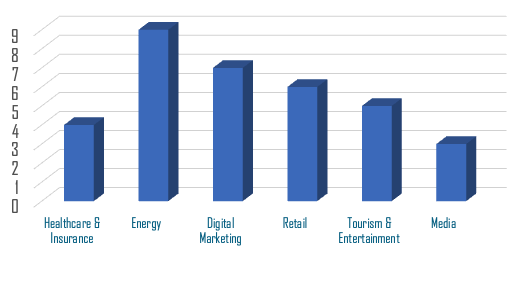
Energy was the most applied for domain in Track 2.
Details about the startups
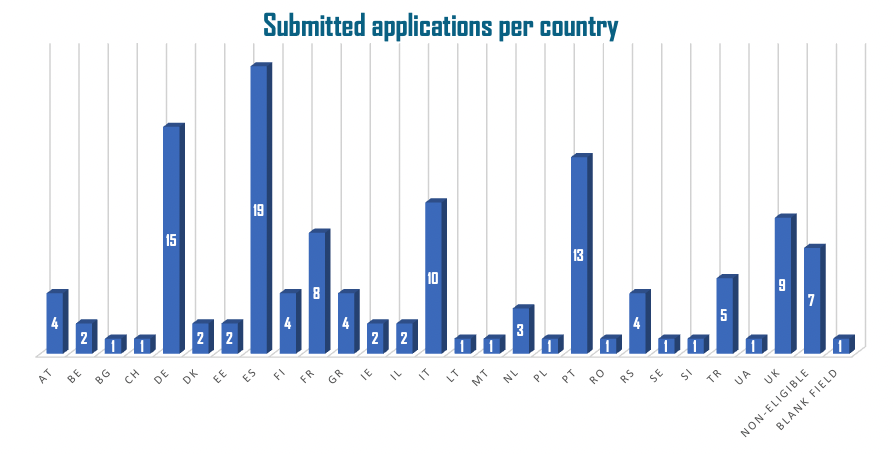
There are a total of 26 eligible countries from which the submissions came in. We can see a predominance of Spain (19), followed by Germany (15), Portugal (13), Italy (10), UK (9) and France (8).
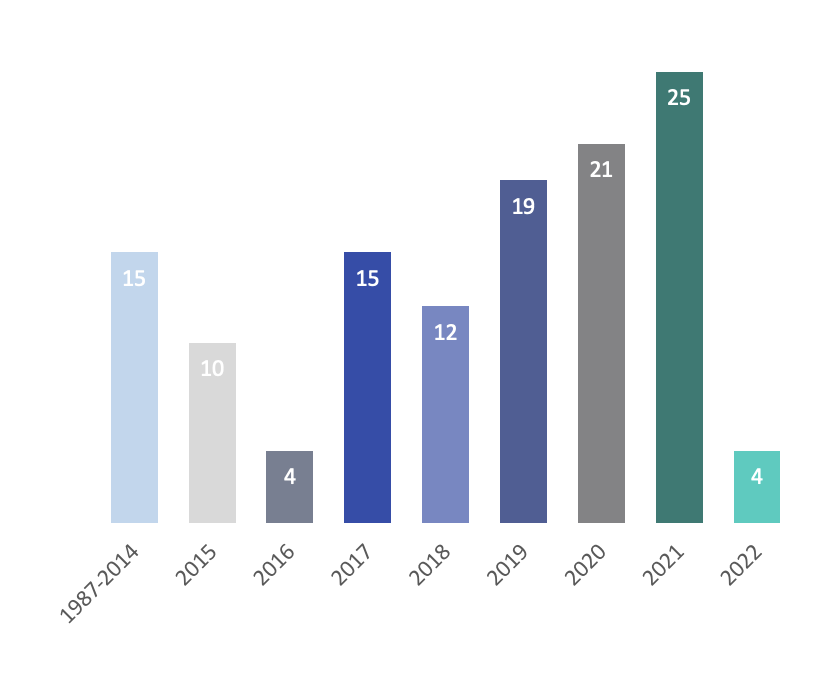
The following graph shows the founding year of the startups which have applied to the 2nd REACH Open Call. The majority of them have been founded in the last 4 years.
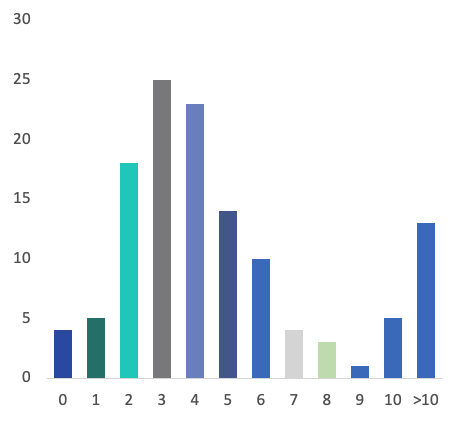
The majority of startups which have applied have a team of between 2 and 6 people.
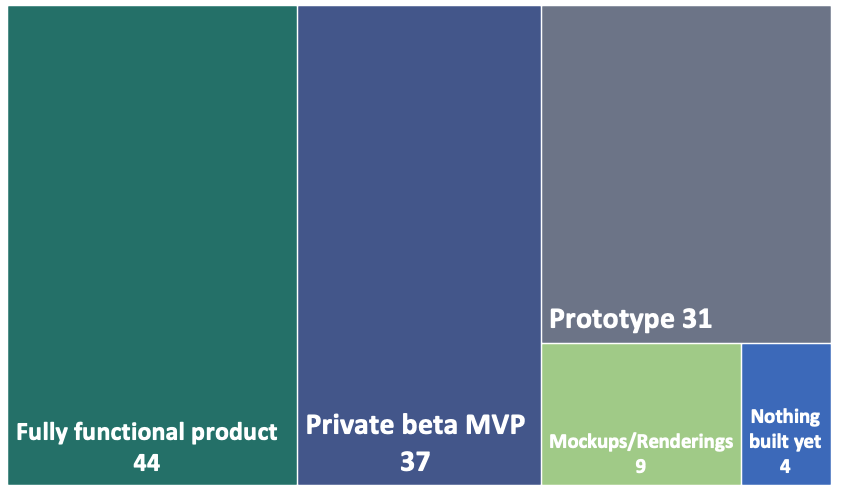
The majority of the startups already have a fully functional product, a private beta MVP or a prototype.
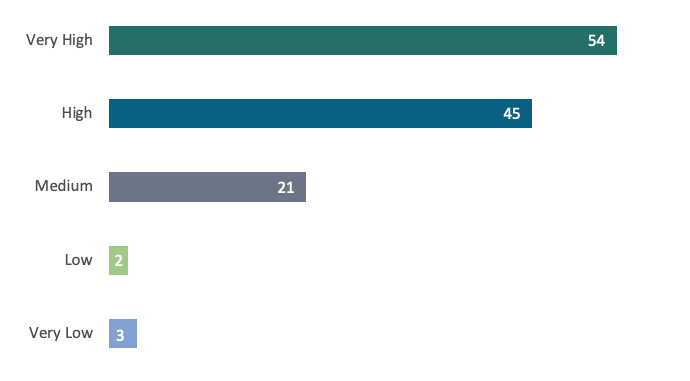
54 of the startups have said that their acquaintance level of Big Data and AI is very high, 45 have noted their level as high, 21 as medium, 2 as low and 3 as very low.
What’s next?
Our external expert will now take a month to evaluate the proposals and decide who will be the 30 lucky big data innovators to join the second iteration of the programme! The maximum rate of proposals per track has been set to 40% theme-driven, 40% ready-made and 20% free choice.
